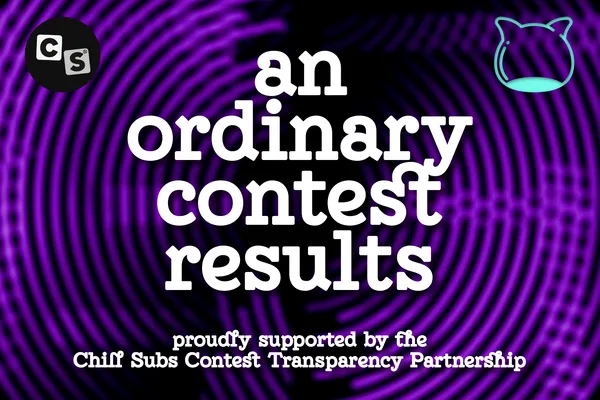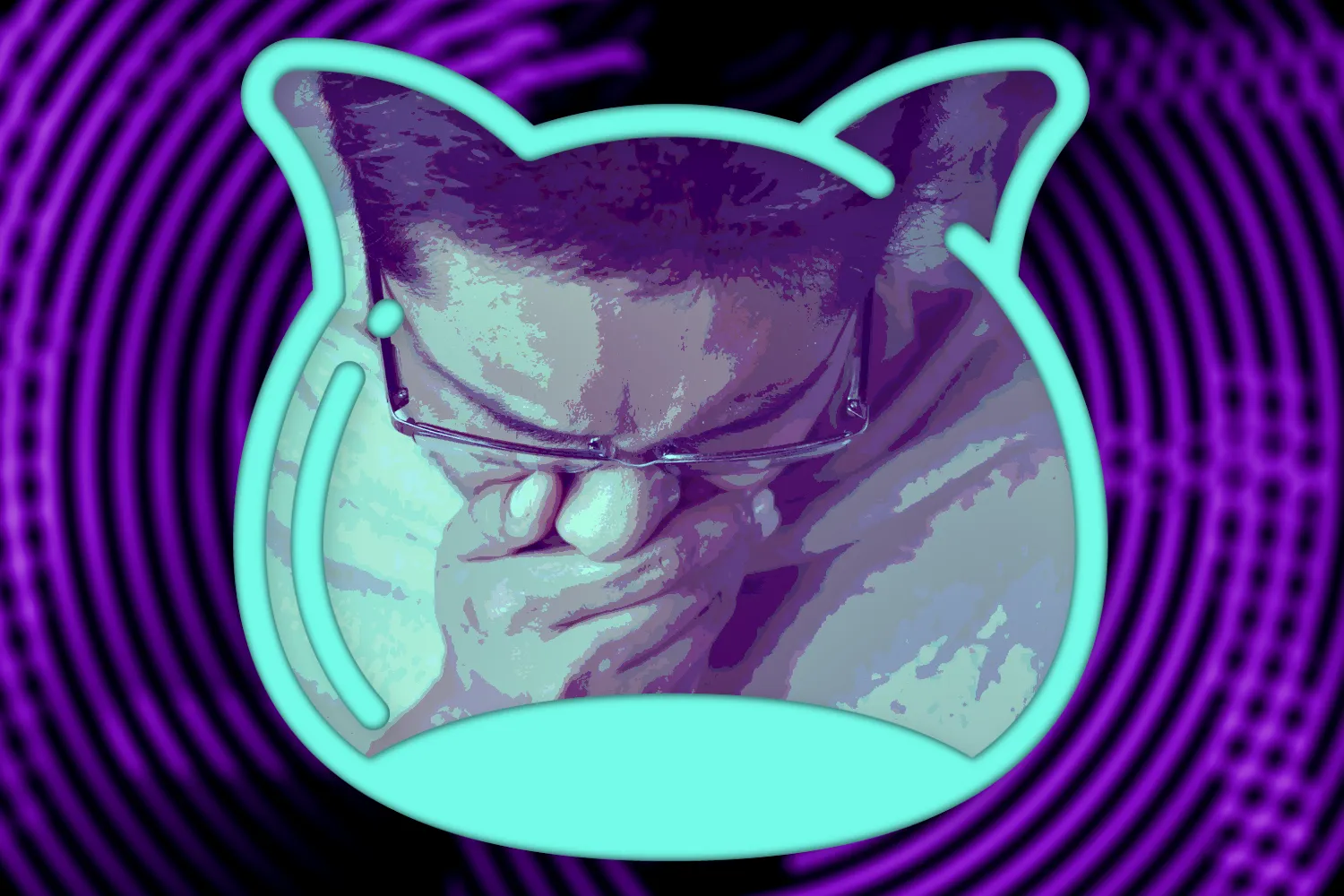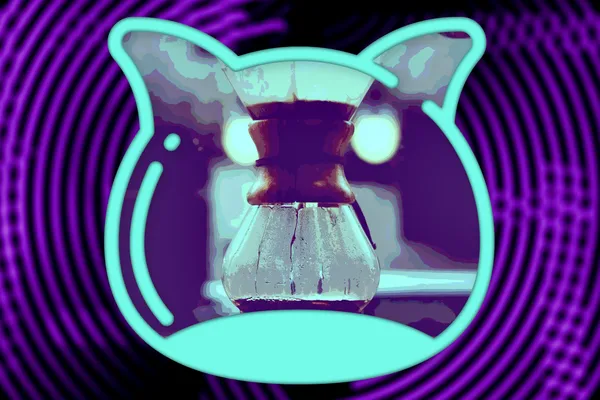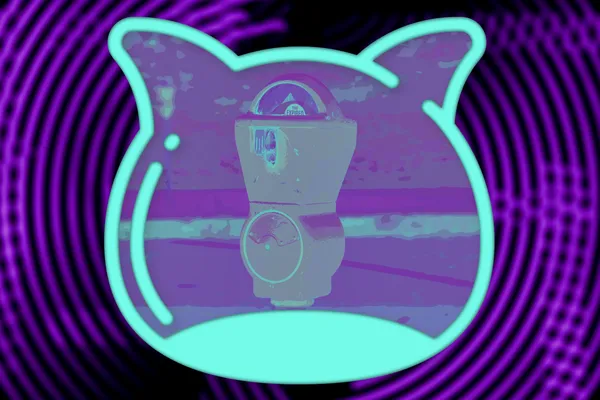
An ordinary contest results
truly extraordinary
by Michael Allen Rose

It was the day the whole world went away. The day when the messy, confusing, complicated summation of everything that ever is and was decided to pop, a reverse big bang, matter condensing and folding, smaller and smaller, until nothing remained but a dot. A dot so infinitesimally tiny, none of the formerly sapient creatures made from its matter would have been able to detect its presence.
And, it was clearly my fault.
Now I was outside of it. That meant I was the only thing in existence capable of caring for everything else and I honestly wasn’t sure if I was ready for that kind of responsibility. I didn’t even do well with the “take care of this egg” challenge in high school health class. I let someone grab it out of my hand at lunch and throw it against the gymnasium wall. Now that the entire universe could comfortably stack on top of an atom, I was afraid I’d lose it in between the folds of my own fingerprint. Is this how god got his job? Does that make me god? The theological implications notwithstanding, I was simply nervous I’d drop everything down a sewer grate or something.
That, of course, would be dependent on the existence of sewer grates, which did not exist—yet. I wondered if thinking about sewer grates hard enough would suddenly manifest one? I tried to see if I could invent the universe, starting with something small. A sewer grate. A hummingbird. Bees. Steven Hawking. The concept of regret. I squinted and grunted, trying to make a great show of thinking since thought didn’t usually have a physical tell, but all that happened is I felt a tickle deep in my sinuses. I immediately stopped before things got worse.
I should probably start from before, so you can understand what’s happening. It all began with a sneeze. This was no ordinary sneeze, not one of those tiny, squeaking, cartoon sneezes that make everyone around you chuckle gently and whisper a weak “bless you.” Some sneezes are so powerful they tear up your throat and send mucus flying. They buckle your legs, and make you bend at the waist, struggling to maintain your balance in a gale force wind coming from inside your own lungs.
This sneeze imploded the cosmos.
How could a simple sneeze do that, you ask yourself? Something people do all day, every day, all over the world. Something so mundane and common. The little death. A great, rolicking ka-choo. If that was the cause, why now, why this sneeze? Well, I had never sneezed before. This was my first. And much like any other object of scrutiny in theoretical physics, a sneeze unsneezed cannot be measured or understood until it is observed. Schrodinger’s sneeze.
Ever since I was a child, I was frightened of sneezes. The lack of control. The loud noise. I abhorred the itch of an obstacle in my nostril, a tickle in my sinus cavity. I would pick, blow, and squeeze the bridge of my poor, abused nose—anything to stop myself from experiencing the internal head explosion a sneeze represented. I carried handfuls of napkins with me from the time I had pockets. I saw people sneeze. It looked incredibly unpleasant. So I just… didn’t. Not for a very long time.
Until today. Cacio e Pepe. A simple, Roman spaghetti seasoned with black pepper and Pecorino Romano. A nice meal at my favorite little Italian cafe. I was enjoying a sidewalk table, a glass of white wine, and a light lunch. I liked my job. Being a programmer, I develop apps, and I liked the company where I worked. I just had a good review from my boss, the weekend was on its way, and I was feeling like I deserved a treat. The sky was partly cloudy with a small chance of rain, but now, the sun was shining. People walked by with dogs on leashes, smiles on faces, even the birds and squirrels seemed like they were having a good day.
The pasta twirled up my fork like stripes on a barber pole. It was delicious; a rich, creamy cheese dripping down noodles with just a hint of heat on the back end. I must have taken too big a bite, or accidentally inhaled at the wrong moment. I didn’t even feel it coming.
An explosion inside my head. My ears rang like a grenade went off. I convulsed forward, bending at the waist, bashing my head into the table, and knocking my wine glass to the concrete floor. I heard the glass shatter from somewhere far away, through a hazy tunnel of tinnitus.
Blue lights danced in the blackness, spinning endlessly like galaxies being born. My lip was wet, my nasal passages aching from the strain, and I softly groaned as tears formed in the corners of my eyes. Even with my paranoia, my apprehension, logically I knew what a sneeze was. Theoretically and scientifically. I walked myself back from the edge of panic. It was simply a bodily function. People experienced it all the time. It wouldn’t kill me. I would recover. I just needed to find a napkin, excuse myself to a bathroom to check for blood, apologize to nearby tables for the noise, and the wait staff for the spilled wine and broken glass.
Slowly, I detected a vague sucking sound, which transformed into a roar, like a distant jet engine, coming ever closer. As I opened my eyes, my vision began to ripple and twist, like I was looking through a heat shimmer on a blazing hot summer highway.
In an instant, everything changed. Reality tore apart like strands of taffy, pulled beyond its structural capacity. I suppose it was omniscience, in a way. In a fraction of a blink of an eye, I saw everything, heard everything, felt everything, as it all got sucked into a liminal space floating directly adjacent to me. I would say in “front of me,” but in that instant, concepts like front and behind, above and below stopped being relevant. Everything, everywhere, was condensing into a singularity, and I was at its epicenter.
The faces of people, both known and unknown. Animals, trees, rocks, and features, both human-made and natural, whizzed by. All the parts of the Earth, and then the sky, the very atmosphere itself. Chemical compounds and molecules, ideas formed by little electrical patterns in space, memories, and fragments. Space, the comets, and planets and stars. Other singularities, black holes, antimatter, all the concepts we call “physics” broken down to nothing more than theories, all strung along as a series of data fragments came rushing in. Atoms that could not get any smaller somehow did, becoming so dense that light, heat, and matter stopped existing in any recognisable form.
I blinked a few times and instinctively looked for my pasta. It too, as you might expect, had been condensed into abyssal nothingness. This was particularly egregious because, despite the trauma of seeing the universe end, I was still pretty hungry.
I’ve been thinking about my situation for some time now. It’s hard to tell how long, because time as a concept has stopped existing, making it very difficult for me to mark its passage. My watch still works, for some reason, but sometimes it stops, runs backward, or temporarily becomes something else. A sweatband, a handcuff. Earlier it became a turkey, which looked at me, made some angry gobbling sounds, and then vanished again.
Strangely, this gives me hope, because if I can observe and understand the concepts of bands, and the sweat that feeds them, or incarceration (or bondage) or giant, ugly, angry, but delicious poultry, then surely the everything that has become nothing still somehow has those things embedded into its code. Which means, a good programmer could reverse engineer the universe. I just needed to find the legacy code.
I immediately set to work, but ran into a problem right away, as there was no physical reality to look at. This was no ordinary treasure hunt, where I could look under a rug, or behind a rock to find a key. There was just me and the void. And my watch. My wallet. A phone. A few coins. My clothing. Okay, so that was a start, kind of. I couldn’t be wearing a shirt if shirts had never been a thing. Perhaps then, my memory of the shirt was what made the shirt so essentially shirty?
Carl Sagan, speaking on apple pies and universes, pointed out that in any creation project, one always requires some element derived from something else. A pie needs flour. If you want to make your own flour, you need wheat, and a mill. To get those things, you need a farm, and thus, soil. Also metal, which requires minerals. To truly say you made the pie, you'd have to have also made the dirt, mined minerals from it, and more. To make the iron, you need a star to form iron out of lighter elements. To make a star, you need plasma. Your apple pie can be traced all the way back to the big bang.
I began to reverse engineer everything I could. What is the essential element of a watch? It was gold. Gold is a pure element, but that’s only seventy-five percent of yellow gold alloy, which is also made up of silver and copper. Those are mined from deep within the ground. The ground requires a planet. Planets need gravity to hold together. So on, and so on. I have been working on this project for some time now, although it’s hard to say how long, because time has been a tricky concept to rediscover.
But I notice now, the long, white beard. It would make no sense to naturally grow hair, because that would require the passage of time, follicles, the idea of hair, probably a splash of evolutionary biology. However, this means that because I believe the passage of long periods of time would result in my growing a crazy hermit beard, it manifested.
Who knew the crystal healing types were right about manifesting things?
I’m pretty sure I’m god, now. That probably accounts for the long white beard, too. I’m pulling my self-image from what I remember of pop culture, when that was a thing.
The point here is, if you’re reading this, well, welcome to the universe. I did my best to fix up the place, although there are definitely a few bugs. I’m working on them though. I manifested a team of quality assurance people to test out various iterations. Truly, we apologize if you happen to be in one of the experimental timelines right now, I know they’re not exactly stable. Just know your prayers are important to us, and will be answered in the order received. I made operators. They’re standing by. If this universe ends in a terrible way, well, we’ll have to just try again. And again. Surely someone will figure this out, like I did, and create another one. And remember, if you see someone sneeze, say “bless you.” It might be their first time being god.
This week’s ad slot was purchased by friend of Foofaraw, Evan Passero, in support of Elevated Access—a non-profit organization that enables people to access healthcare by providing flights on private planes at no cost, whose volunteer pilot network transports clients seeking abortion or gender-affirming care across the United States.
Foofaraw will match up to $300 in donations to DIFFA Dallas, Elevated Access, and Denton Community Food Center through the remainder of 2025.


